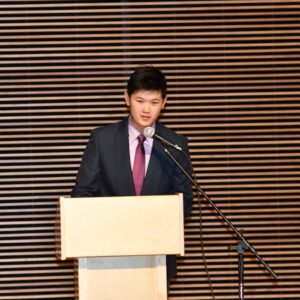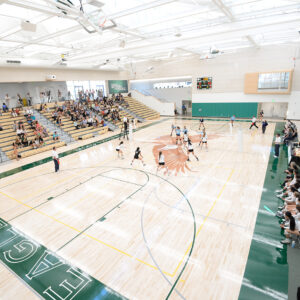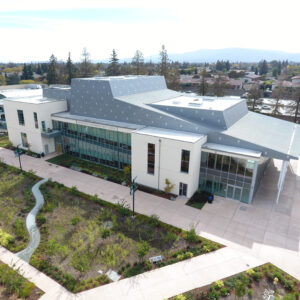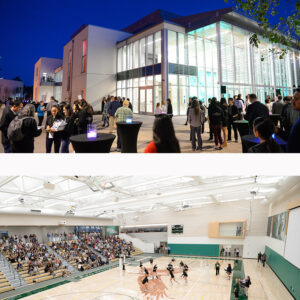Harker recently received a certificate from the U.S. Green Building Council (USGBC), a nonprofit organization committed to cost-efficient and energy-saving green buildings, signifying that Nichols Hall has received a Gold Leadership in Energy and Environmental Design (LEED) certification.
Harker is the first school in Santa Clara County to achieve a gold ranking. Dan Geiger, executive director of the USGBC’s Northern California chapter, visited Harker Aug. 13 to deliver the certificate and congratulate those involved in its achievement.
Nichols Hall, Harker’s new science and technology center, opened in August 2008, and embodies the school’s long-held commitment to environmental issues, which influenced every decision in the construction. Originally expected to earn the Silver level of certification, Harker students did the work that pushed the building to Gold status, noted Mike Bassoni, Harker’s facilities manager.
He noted that recognition of the multiple displays on green living and green building construction developed by students in teacher Jeff Sutton’s class for the 2009 Harker Research Symposium were key to gaining the Gold rating. “The USGBC recognized these displays as ongoing educational material developed by the students and that gave us the final point needed to place us in the Gold category,” said Bassoni.
According to the USGBC Web site, “LEED promotes a whole-building approach to sustainability by recognizing performance in five key areas of human and environmental health: sustainable site development, water savings, energy efficiency, materials selection, and indoor environmental quality.”
There are a few other schools around the Bay Area with LEED-certified buildings, including Windrush School in El Cerrito, whose Platinum-rated library opened in 2008; Marin County Day School in Corte Madera has a Gold rating for its Step 1 project; and Nueva School in Hillsborough, San Mateo County, opened a Gold-rated learning complex in 2007. The LEED certification system, created by the USGBC, scores buildings in multiple categories and the total number of points determines level of certification: 40 or more points for Certified, 50 or more for Silver, 60 or more for Gold and 80 or more for Platinum.
Criteria for certification include the sustainability of the building site, how efficiently the building manages water, how it uses energy, its indoor air quality and its proximity to pre-existing infrastructure and public transit. For more information, visit http://bit.ly/YhRUk









